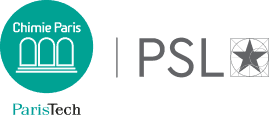Optimization and process control
MH24OP.OCP
written exam (100%)
This course is divided in two parts. The first concern the design of experiments. This statistical and mathematical method allows to reduce the number of experiments and to optimize multifactorial processes. The students will practice “classical” design such as full factorial, fractional factorial and central composite design, as well as statistics to interpret the results.
The second part is dedicated to the methods used to control processes. Regulation is indeed a key part to ensure the quality and safety of industrial processes. Open loop and closed loop feedback control will be discussed, and especially the PID (proportional-integral-derivative) controller developed in the 1920’s for the manufacturing industry and which are nowadays used universally for automatic control.
Practical exercise will be carried out with Matlab and Nemrod.
Students will be able to define an experimental design, to choose the best strategy to optimize processes, to calculate linear regression model and interpret the results using statistical tools. They will know how to identify a regulation method, calculate and set the controlling parameters. They will also explain the different methods to measure the fundamentals physical parameters in a chemical process (flow, temperature).
Teaching language: FR
Documents:
handouts
